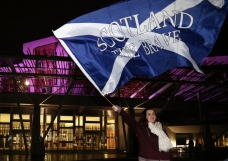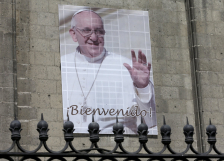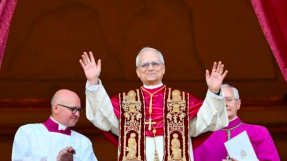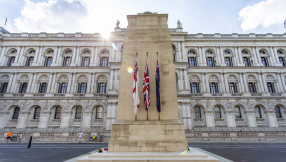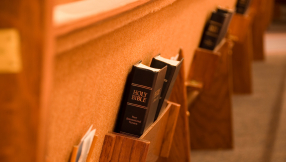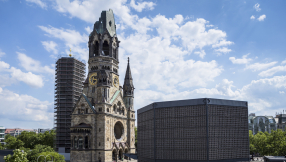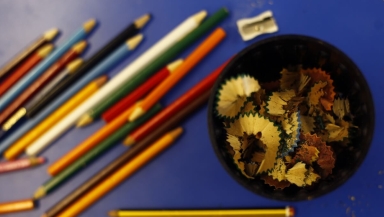
The place of religion in Scottish schools has been strengthened in recent years, despite a decrease in the influence of religion on society overall, a new report has found.
Commissioned by the Humanist Society of Scotland (HSS), the Religion in Scots Law report found that "Education is an area in which the influence of religion has changed its form, but has in many ways been increasing".
"There is no question that education in the school classroom and the university lecture theatre has been secularising for some considerable time, and is continuing to do so," the report continues. "But this is in contrast to changes in curricular and governance structures which have not diminished, but rather strengthened the place of religion."
Written by academics at Glasgow University, the report said that Scottish society overall was becoming increasingly secular. It cited a decline in the number of churches, falling church membership and affiliation, and a rising proportion of Scottish people registered as having "no religion". It also said religious marriage ceremonies were becoming less popular, and statutory provisions put in place to protect a "Christian Sabbath" were decaying.
It said the strengthening of laws protecting religion in education bucked this trend.
Chair of the Scottish Secular Society, Douglas McLellan, noted the contrast between the number of Scots who identify as religious and the "reach of the Church of Scotland into non-denominational schools".
"From religious observance on the curriculum to anti-democratic representation on local education committees we can see religion, and the Church of Scotland in particular, desperately trying to turn back the tides of change. Even The General Teaching Council of Scotland are required to include one member from Church of Scotland and one from the Roman Catholic Church," McLellan said.
"Church of Scotland ministers remain privileged in law being the only people allowed to conduct marriages by virtue of their position as a minister. Leaders of all other denominations, including Catholics and Muslims, in Scotland have to seek permission from the state to conduct marriages.
"It is time that religions in Scotland recognise that there are many people who do not believe and that it is unfair for one section of society to be granted a special place in law. The Scottish Secular Society believes that all people in Scotland should be equal before the eyes of the law and in society as a whole."

Head of the HSS, Gordon MacRae, called for a "move to a secular education system" in response to the report's findings.
""Every state school in Scotland is a faith school," he said. "We hope this document can be a catalyst for a new debate."
However, a spokesman for the Church of Scotland defended the Kirk's role in shaping the country's education system, telling the Herald Scotland that it had been a "defining force".
He said: "Today we retain an active interest in the moral and spiritual development of children. We believe this is measured and appropriate given that churches and faith groups of every kind are invited to reflect the traditions and beliefs which are a significant part of our common culture through religious observance and Time for Reflection.
"Repeated scrutiny of the current arrangements by Members of the Scottish Parliament in recent years has not found any compelling need for change."










